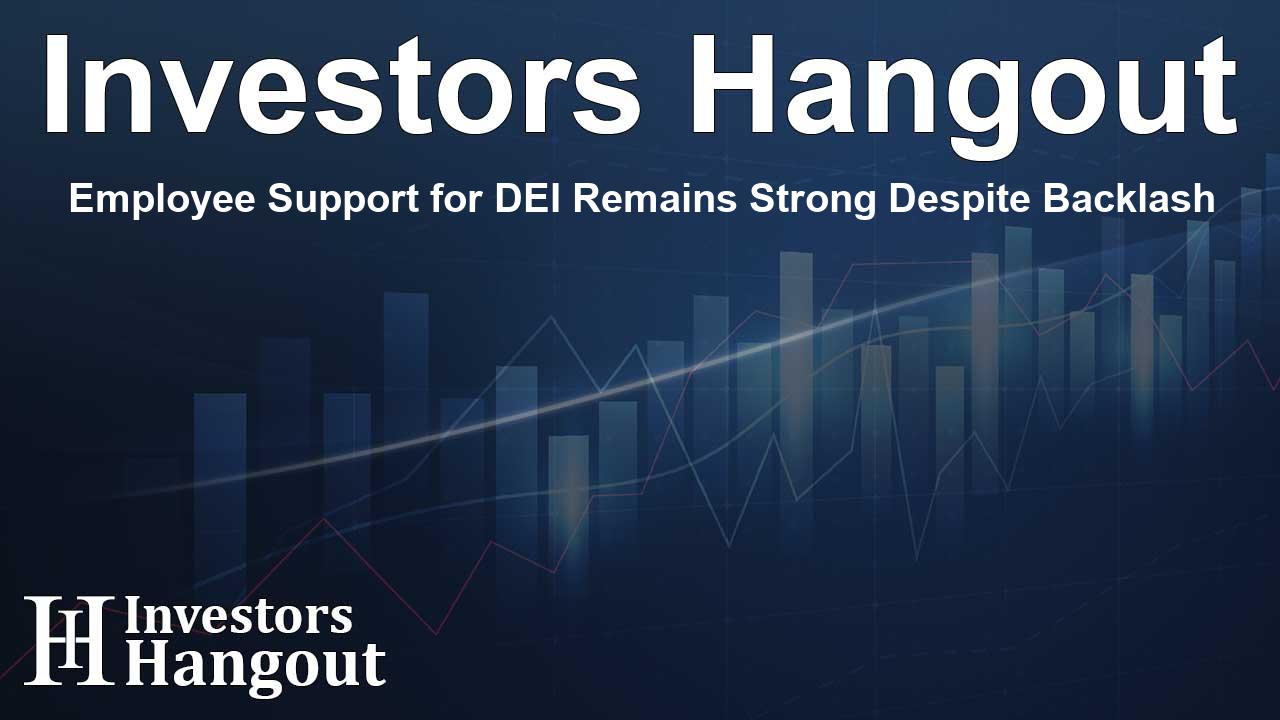Employee Support for DEI Remains Strong Despite Backlash

Employee Support for DEI Remains Strong Amid Challenges
A landmark Supreme Court decision and a polarized electorate have raised questions about the future of diversity, equity, and inclusion (DEI) initiatives in Corporate America. Despite these challenges, a substantial portion of the workforce—a remarkable 58%—believes their employers are adequately investing resources in DEI programs. Surprisingly, only 21% feel these organizations could do more in this arena.
The Importance of DEI in the Workplace
The recent survey data reveals insightful details about employees' perspectives on the relevance of DEI efforts. It is particularly telling that nearly half of the women surveyed (49%) and over half of Black respondents (56%) indicate they would not consider employment with a company that lacks a commitment to DEI initiatives.
Diverse Perspectives on DEI Initiatives
Allan Schweyer, a Principal Researcher in Human Capital, emphasized, "DEI values and initiatives are crucial for many US employees. Leaders should remain focused amidst the ongoing scrutiny, as these initiatives are essential for attracting and retaining both present and future talent." This sentiment resonates deeply within organizations aiming to build inclusive work environments.
Breakdown of Employee Sentiments
According to the survey, employees support DEI initiatives, with a notable 21% wishing for an increase in their employer’s commitment. The emphasis on fairness policies is prevalent, with 81% of workers acknowledging that their companies promote DEI actively through leadership.
Positive Impact of DEI Programs
DEI initiatives focusing on equitable pay and communication appear to have a profound impact on workforce morale. About 63% of employees reported feeling more connected and engaged when leadership prioritizes these values through effective communication. Importantly, however, there is a degree of uncertainty regarding the effectiveness of specific DEI metrics, with 52% of workers expressing that measuring DEI objectives does not enhance their work experience.
Generational Insights on DEI
Demographics play a significant role in shaping attitudes towards DEI efforts. Millennials exhibit the highest approval ratings of DEI approaches, while Baby Boomers show greater skepticism. In a detailed breakdown, 52% of Millennials feel their organizations are doing enough for DEI, compared to 57% of Generation X and 63% of Baby Boomers responding similarly.
Belonging and Engagement at Work
A whopping 71% of the survey participants affirmed that DEI initiatives enhance their sense of belonging at the workplace. Additionally, 62% confirmed that these initiatives increase their engagement, while only 43% noted a direct positive effect on productivity, indicating a potential area for future research and development.
Challenges Faced by Executives
Executives are responding to a shifting landscape as they navigate increasing scrutiny over DEI initiatives. A significant 63% characterize the current political climate as extremely challenging for compliance and advancement of their DEI objectives, particularly following recent legal decisions impacting diversity efforts.
Revisions and Future Directions in DEI Communication
In addressing these challenges, companies are revising their DEI terminology to encompass broader concepts such as 'inclusion' and 'belonging.' Interestingly, 53% of executives report having made these adjustments, but only a small fraction plan to reduce the volume of their external DEI communications.
About The Conference Board
The Conference Board is a member-driven think tank dedicated to providing insights for the future. As a non-partisan entity established in 1916, it aims to deliver trusted insights that can guide organizations in their strategic decisions.
Frequently Asked Questions
What is the recent survey about DEI initiatives?
The survey examines employee support for DEI initiatives amid recent political challenges and public scrutiny of corporate policies.
How do employees view their organizations' DEI efforts?
Employees express significant support for DEI initiatives, with 58% feeling their organization is adequately dedicated to these programs.
What demographic factors influence perceptions of DEI?
Millennials tend to show stronger approval for DEI initiatives compared to older generations, reflecting different workplace expectations.
Why is it important to adjust DEI communications?
Revising DEI terminology helps organizations align their messaging with broader themes of inclusion and belonging, enhancing acceptance and understanding.
How can companies demonstrate the value of DEI initiatives?
Firms should focus on measuring and communicating the tangible productivity improvements that stem from diverse teams to illustrate the contributions of DEI effectively.
About Investors Hangout
Investors Hangout is a leading online stock forum for financial discussion and learning, offering a wide range of free tools and resources. It draws in traders of all levels, who exchange market knowledge, investigate trading tactics, and keep an eye on industry developments in real time. Featuring financial articles, stock message boards, quotes, charts, company profiles, and live news updates. Through cooperative learning and a wealth of informational resources, it helps users from novices creating their first portfolios to experts honing their techniques. Join Investors Hangout today: https://investorshangout.com/
Disclaimer: The content of this article is solely for general informational purposes only; it does not represent legal, financial, or investment advice. Investors Hangout does not offer financial advice; the author is not a licensed financial advisor. Consult a qualified advisor before making any financial or investment decisions based on this article. The author's interpretation of publicly available data shapes the opinions presented here; as a result, they should not be taken as advice to purchase, sell, or hold any securities mentioned or any other investments. The author does not guarantee the accuracy, completeness, or timeliness of any material, providing it "as is." Information and market conditions may change; past performance is not indicative of future outcomes. If any of the material offered here is inaccurate, please contact us for corrections.








